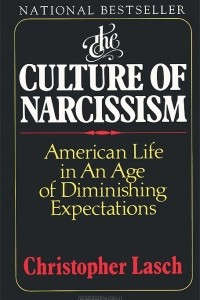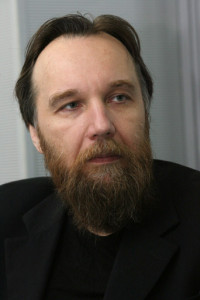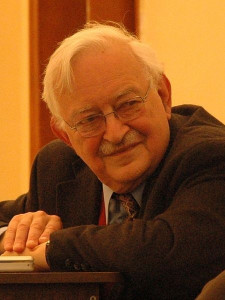-
Жанры
-
Художественная литература
- Приключения 75083
- Фантастика 100897
- Фэнтези 73474
- Детектив 59379
- Ужасы 48028
- Роман 70045
- Классическая литература 60314
- Историческая проза 8094
- Современная проза 141702
- Детская литература
- Культура и искусство
- Научная литература
- История
- Бизнес
- Прикладная литература
- Документальная литература
- Образование
- Дом и семья
- Физическая культура
- Здоровье
- Литература на иностранных языках
-
Художественная литература
- Книги
- Рецензии
- Сообщество
- Блоги
- Цитаты
- Тесты
- Подборки
- Премии
- Конкурсы
- Другое

Кристофер Лэш
Краткая биография автора
Mentored by William Leuchtenburg at Columbia University, Lasch was a professor at the University of Rochester. Lasch sought to use history as a tool to awaken American society to the pervasiveness with which major institutions, public and private, were eroding the competence and independence of families and communities. He strove to create a historically informed social criticism that could teach Americans how to deal with rampant consumerism, proletarianization, and what he famously labeled the...
Mentored by William Leuchtenburg at Columbia University, Lasch was a professor at the University of Rochester. Lasch sought to use history as a tool to awaken American society to the pervasiveness with which major institutions, public and private, were eroding the competence and independence of families and communities. He strove to create a historically informed social criticism that could teach Americans how to deal with rampant consumerism, proletarianization, and what he famously labeled the 'culture of narcissism.' His books, including The New Radicalism in America (1965), Haven in a Heartless World (1977), The Culture of Narcissism (1979), and The True and Only Heaven (1991), were widely discussed and reviewed. The Culture of Narcissism became a surprise best-seller and won the National Book Award in category Current Interest (paperback).[1][a]
Lasch was always a critic of liberalism, and a historian of liberalism's discontents, but over time his political perspective evolved dramatically. In the 1960s, he was a neo-Marxist and acerbic critic of Cold War liberalism. During the 1970s, he began to become a far more iconoclastic figure, fusing cultural conservatism with a Marxian critique of capitalism, and drawing on Freud-influenced critical theory to diagnose the ongoing deterioration that he perceived in American culture and politics. His writings during this period led him to be denounced by feminists[2] and hailed by conservatives[3] for his apparent defense of the traditional family. He eventually concluded that an often unspoken but pervasive faith in "Progress" tended to make Americans resistant to many of his arguments. In his last major works he explored this theme in depth, suggesting that Americans had much to learn from the suppressed and misunderstood Populist and artisan movements of the nineteenth and early twentieth centuries.[4]
His basic thesis about the family, which he first expressed in 1965 and explored for the rest of his career, was:
When government was centralized and politics became national in scope, as they had to be to cope with the energies let loose by industrialism, and when public life became faceless and anonymous and society an amorphous democratic mass, the old system of paternalism (in the home and out of it) collapsed, even when its semblance survived intact. The patriarch, though he might still preside in splendor at the head of his board, had come to resemble an emissary from a government which had been silently overthrown. The mere theoretical recognition of his authority by his family could not alter the fact that the government which was the source of all his ambassadorial powers had ceased to exist.[5]
На нашем книжном сайте Вы можете скачать книги автора Кристофер Лэш в самых разных форматах (epub, fb2, pdf, txt и многие другие). А так же читать книги онлайн и бесплатно на любом устройстве – iPad, iPhone, планшете под управлением Android, на любой специализированной читалке. Электронная библиотека КнигоГид предлагает литературу Кристофер Лэш в жанрах .
Творчество Кристофер Лэш
На нашем сайте представлены 2 книги автора Кристофер Лэш. Самая популярная по мнению наших читателей "".
Растущая обособленность элит означает, наряду с прочим, что политические идеологии теряют касательно к заботам обычных граждан. Поскольку политическая дискуссия, как правило, остается внутренним делом так - и метко - называемого "говорящего сословия", она все более замыкается на себе и формализуется. Идеи запускаются и вновь принимаются в оборот как слова-зуммеры или как стимулы условных рефлексов...
When The Culture of Narcissism was first published, it was clear that Christopher Lasch had identified something important: what was happening to American society in the wake of the decline of the family over the last century. The book quickly became a bestseller. This edition includes a new afterword, "The Culture of Narcissism Revisited."
Похожие авторы

Если у Вас возникли вопросы по работе сайта - напишите нам!
нашли ошибку на странице!

Нейросеть ориентируется на оценки прочитанных вами книг
поиск

Найдите книгу, автора, подборку, издательство, жанр, настроение или друга на Книгогид
подборки

Создавайте подборки с книгами, которые вы прочитали, подписывайтесь на подборки интересных пользователей.
Регистрируясь, вы соглашаетесь с нашими Условиями и политикой конфиденциальности
Книгогид использует cookie-файлы для того, чтобы сделать вашу работу с сайтом ещё более комфортной. Если Вы продолжаете пользоваться нашим сайтом, вы соглашаетесь на применение файлов cookie.










